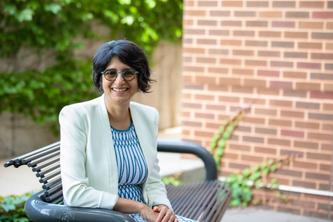
Special purpose acquisitions companies (SPACs), also known as “blank check companies,” have exploded in popularity and people are still wondering exactly why.
Some experts say this is an innovative method of financing that allows companies that otherwise would be excluded from the markets to participate. Others believe this is just a fad where uninformed investors lose money.
University of Minnesota Carlson School of Management Assistant Professor Martin Szydlowski is an expert in corporate finance. He can speak to the volatility of SPACs and why financial leaders are seeking stricter regulations.
Martin Szydlowski, Ph.D.
“Unlike a standard Initial Public Offering (IPO), a SPAC goes public as a shell company with only cash and limited investments as assets. Up to two years later, the founders identify a private target company for the SPAC to merge with.
“SPACs are redoing how to take a company public. They avoid the use of an underwriter, making it cheaper. And SPACs have less regulation, particularly in what they disclose to investors.
“In the last decade, SPACs have been performing poorly in the stock market, leaving investors with substantial losses and alarming regulators. Some research suggests SPACs release excessively optimistic projections of future value, which influences retail investors (individuals investing their own money) who overvalue the shares.
“SPAC investments tend to be risky for retail investors because most don’t have a background in finance and they might just be buying into a SPAC due to a celebrity’s backing. Those looking to invest should keep the following in mind:
- Know the differences. SPAC structures are quite complicated and offer different securities than a standard IPO. SPAC sponsors sell investors ‘units.’ These are a bundle of shares and ‘warrants,’ which allow investors to buy more shares at a certain price. After finding a target company, SPAC founders may also make side deals with institutional investors (large entities like hedge funds) by giving them discounts, which initial investors may not be aware of (also known as PIPE financing).
- Stay informed. SPACs aren’t like a 401k — they require active monitoring. Once a SPAC finds a target company, investors themselves are supposed to scrutinize the target. If they don’t agree, investors can redeem their shares to get their money back or vote against the merger. If somebody's not ready and willing to do this, then they shouldn't invest in SPACs.
- Read the fine print. Some newer SPACs have vesting provisions, which state the founder can only sell their shares one or multiple years after the merger. This gives powerful protection to investors, since it incentivizes founders to pick quality targets.
- Look for experienced founders. Research suggests that founders with a proven track record in venture capital, private equity, or management achieve higher returns. Someone with a strong financial background will likely be better at selecting a target than a celebrity.”
Martin Szydlowski is an assistant professor of finance at the Carlson School of Management. He specializes in corporate finance and contract theory, and teaches courses on those topics to both undergraduate and Ph.D. students. Szydlowski holds a Ph.D. in Economics from Northwestern University and a Diploma from the University of Mannheim, Germany.
About the Carlson School of Management
Located on the University of Minnesota Twin Cities campus, the Carlson School of Management exemplifies a commitment to excellence through a focus on experiential learning and international education, and by maintaining strong ties with the Minneapolis/Saint Paul business community. Through its undergraduate and graduate programs, the Carlson School offers access to world-renowned faculty members and an alumni network of 55,000 people. Learn more at carlsonschool.umn.edu.
About “Expert Alert”
University of Minnesota experts can provide commentary, insights and opinions on various news topics. Find selected experts on UMN’s Experts Guide or send requests to [email protected].
- Categories:
- Business and Management
- Finance





